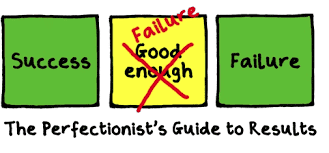Presentation nerves are an issue for many of us. I remember my first presentation at a company conference. I’d practised well and knew I was well prepared but still the night before I slept badly, with anxious thoughts keeping my mind awake.
I wasn’t able to eat breakfast because of a churning stomach and a fear of being sick. As the time got closer my hands began to shake and my teeth to chatter. I couldn’t believe my bodies reaction and thought I might genuinely be ill.
I can’t tell you it was my finest performance, but I did get through it and as the initial reaction calmed down I even began to enjoy it.
Amazingly 75% of people who speak publicly, whether it’s in a meeting, a formal presentation or speaking on the spot, say they suffer from nerves. The one thing I’ve learnt is
Nerves are not the enemy and It’s not about getting rid of them. Use the nervous energy for passion and manage your nerves instead.
How to manage your presentation nerves
- Visualisation – in the days or hours running up to your talk take some time out, sit quietly and visualise your performance. Imagine yourself setting up and starting to speak, smiling, speaking clearly and confidently. See the audiences positive engagement and feel your pride in what you’re achieving. If you regularly run this film through your mind it will calm your presentation nerves as the mind can’t distinguish between real events and imaginary.
- Diaphragmatic breathing – this not only calms your presentation nerves but also helps you project your voice with more impact. The diaphragm is found in the central gap between your ribs just below the bra line. Breathing from here with your stomach going out on the in-breath and falling on the out-breath is stronger compared to speaking from your chest which can be higher pitched and breathy.
- Be an oak tree – feeling grounded when you speak, keeps you in the present moment rather than in your head with all those self-sabotaging thoughts. Imagine you’re an oak tree solid and straight with roots that spread metres out from you under the floor. That grounded experience will give you strength and confidence
- Dry mouth – many of my clients experience a very dry mouth as part of their presentation nerves. To help with this you need to stay very well hydrated before you speak and chewing gum just before speaking helps increase saliva, but don’t forget to take it our before you start talking!
- Practise and practise again – having the confidence that you are well prepared and know your subject is the most important thing you can do to reduce presentation nerves. It’s surprising how many people don’t rehearse their update or talk and then are surprised when it doesn’t go well. A good rule of thumb is that you should spend 40% of your time on content and 60% on practising not just the words but your body language and vocal pitch and pace.
Most of us will always have nerves when presenting, but I can assure you from my own experience that there are many ways to manage those wobbles and I now enjoy that nervous excitement and my speeches are even better as a result.
If presentation nerves are an issue for you, book a call with me to find out how you can overcome them at www.speakwithjo.com
Good luck
Jo x





